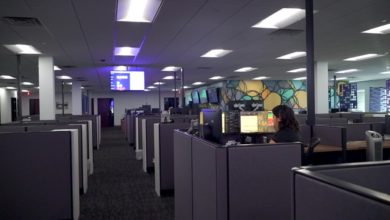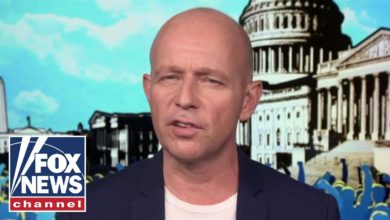
A federal judge says Lakota Local Schools must continue to allow community members to speak at board meetings despite a recent motion the board passed 4-1 to suspend public comment until its public participation policy is reviewed.
Board member Darbi Boddy was the lone vote against the motion that passed last week, brought forward by school board vice president Isaac Adi and seconded by member Kelley Casper. The board's legal counsel, Alex Ewing, suggested the suspension due to a recent lawsuit that suggests the board's public comment policy is unconstitutional.
That lawsuit, Ewing clarified to The Enquirer on Monday, was filed in late September by Curt Hartman on behalf of Liberty Township resident Diane Hughes. Another lawsuit over public records was filed around the same time, and a suit over public comments was filed against the district in October of last year.
In the discussion last week, board members lamented the chaotic nature of recent public meetings, the cost of legal fees and the lack of decorum some speakers addressing the board have recently displayed.
"It's gotten to the point where we can't even conduct business," Casper said during last week's board meeting.
Lakota Local Schools' public comment is reinstated
Attendees at last Monday's meeting voiced disapproval when Ewing suggested a suspension of public comment, and again when the board passed Adi's motion.
On Friday, a federal judge ordered Lakota's school board to reinstate its public comment section as part of an agreement between Hughes and the board.
Hughes' complaint called into question the district's handling of public records. With the complaint, Hartman also filed a motion for a temporary restraining order against the district to enjoin "enforcement of the unconstitutional policy, practice, and custom" of the Lakota school board by which the board and president Lynda O'Connor have "denied Diane Hughes (and, possibly others) access to and participation in the public forum created and established for public comments."
The motion, filed on Sept. 30, states Hughes has been denied access to the public forum because she desired to make comments critical of superintendent Matt Miller, who is currently being investigated by the district. The motion requested the board allow Hughes and any other members of the general public access to public comment at all future meetings.
Matt Miller: Lakota superintendent claims to be victim of 'character assassination,' board hires investigator
'A very dicey situation.' Lakota school board emails show rift on superintendent complaint
Ten days later, the school board voted to suspend public comment entirely.
Hartman and the district attempted to reach an agreement regarding the restraining order request prior to the board's most recent meeting, according to federal court records. But a notation order posted last Tuesday states the parties' discussions to resolve the motion for a temporary restraining order and preliminary injunction "have reached an impasse."
During a subsequent meeting, Hartman and the district reached an agreement and resolved the case with Judge Timothy Black of the U.S. District Court for the Southern District of Ohio:
- Lakota can no longer enforce the item of its public participation policy that restricts complaints about specific employees in public sessions.
- Lakota will provide only one 30-minute public participation period at the upcoming school board meeting on Nov. 7.
- At that meeting, Hughes will be provided three minutes of uninterrupted time to speak.
- The board reserves the right to remove public comment at any subsequent meetings or otherwise revise its public participation policy.
- Hughes agreed not to seek additional attorney fees or nominal damages.
"The shutting down of a public comment portion of a public meeting simply because the public officials do not want to be challenged or criticized demonstrates a lack of appreciation of who works for who," Hartman wrote in a Monday statement to The Enquirer. "We are very pleased that public comment will, once again, be allowed during school board meetings and the taxpayers of the district can fully engage in their First Amendment rights."
Source link








